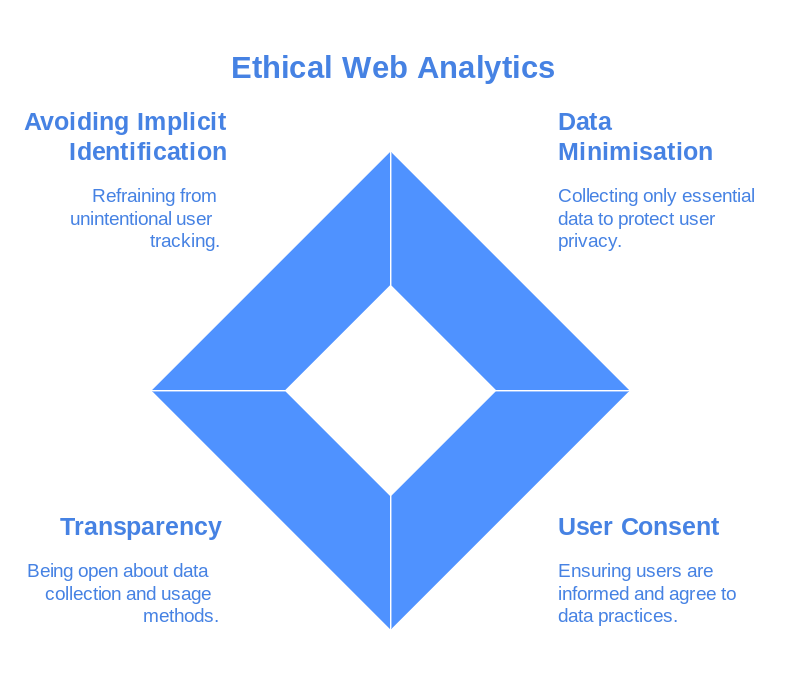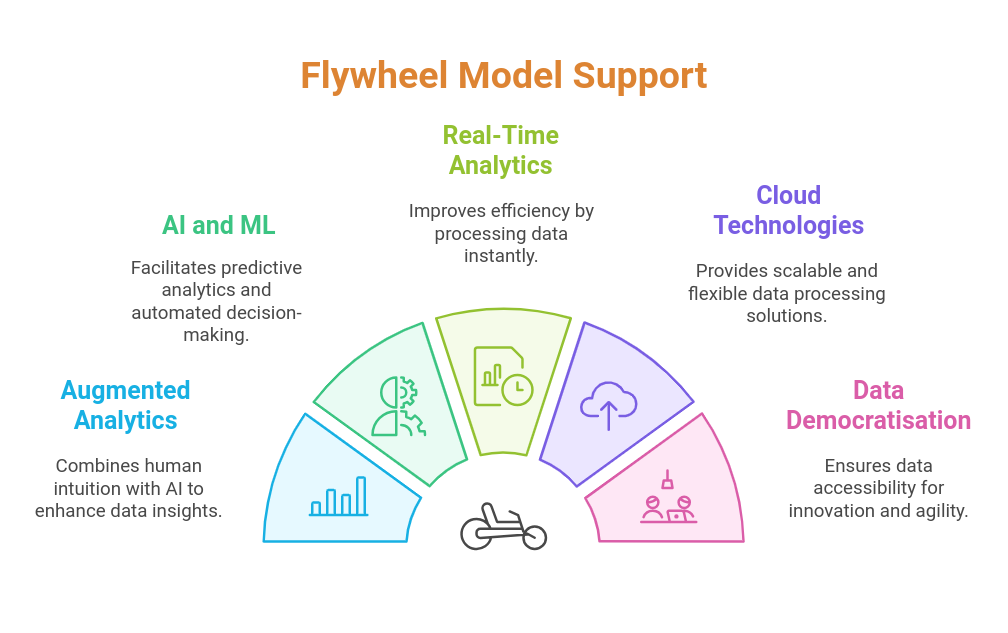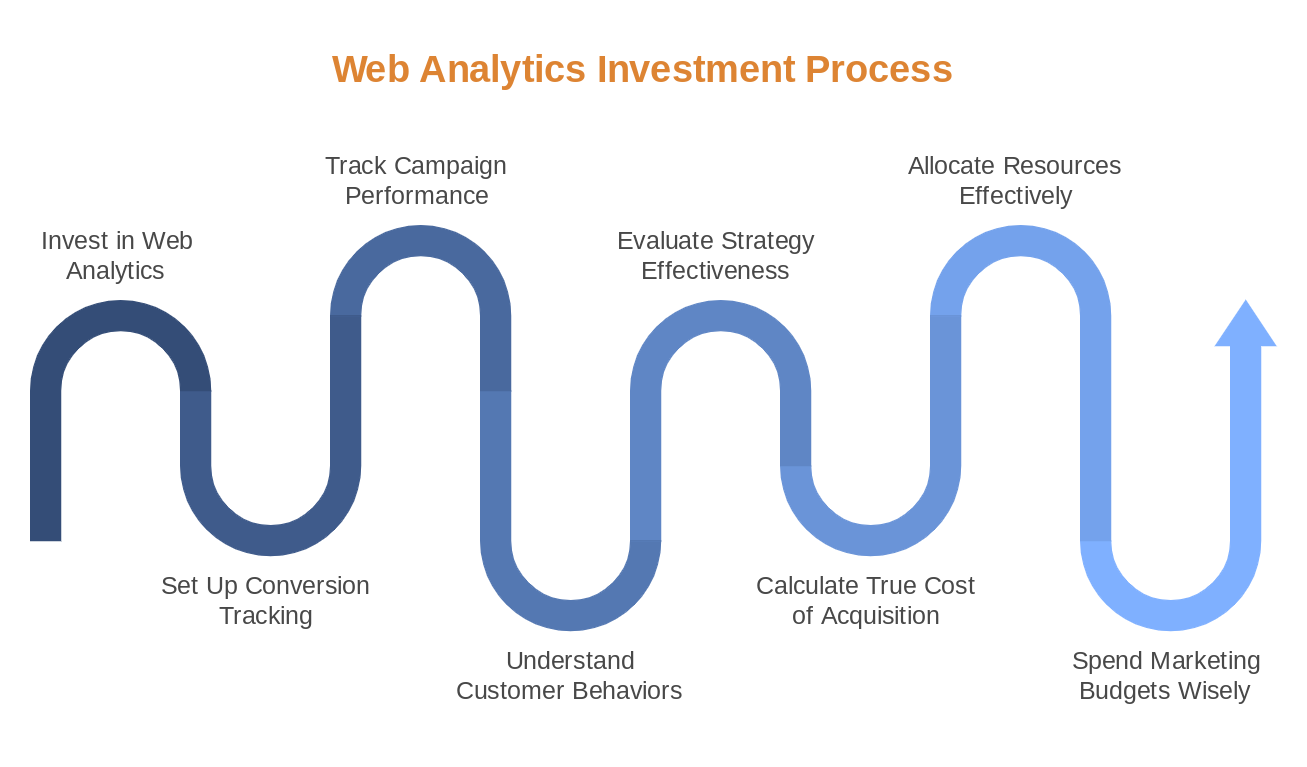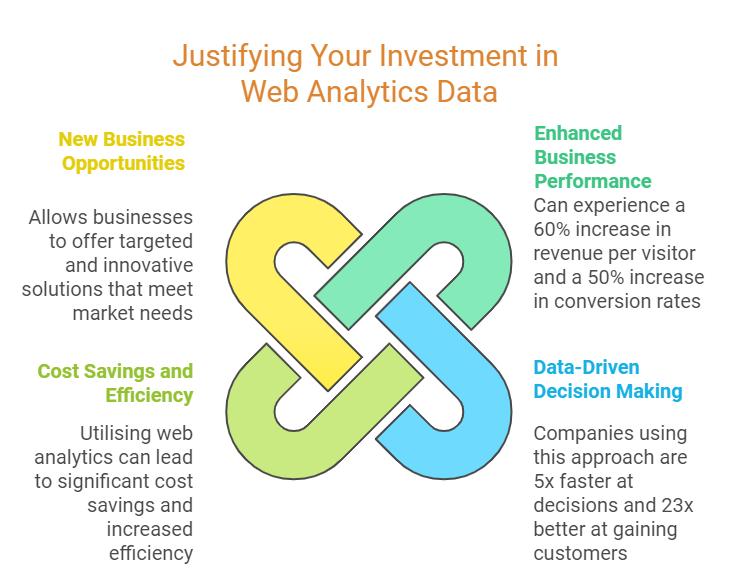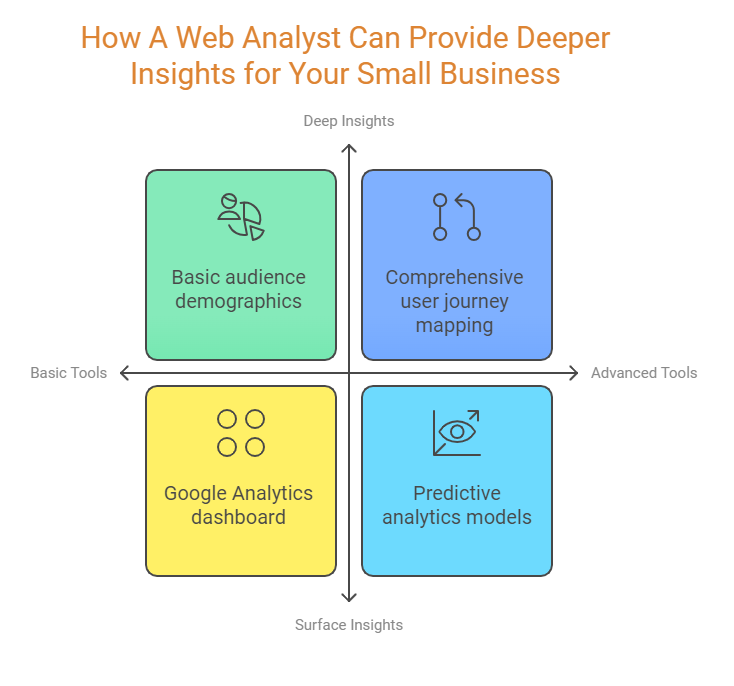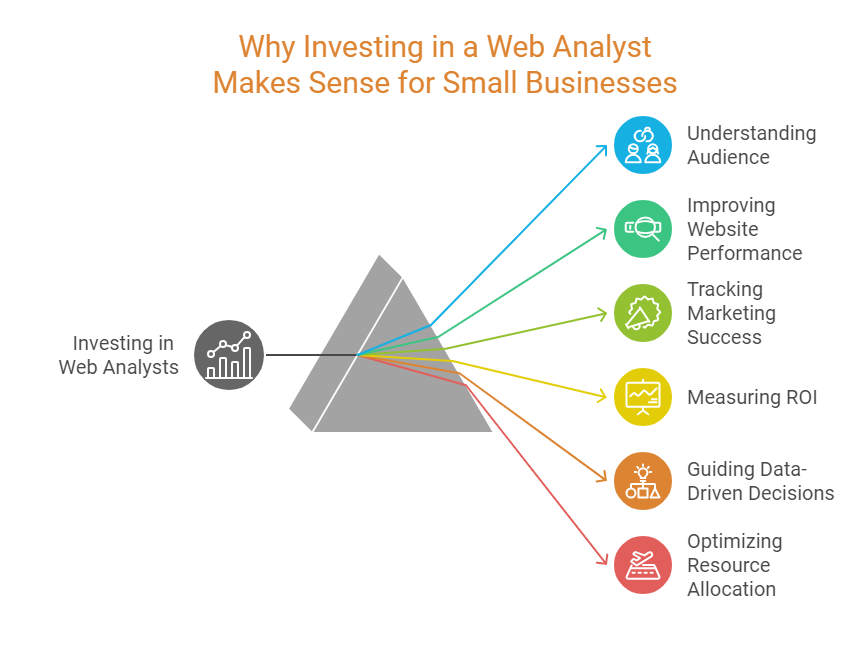In today’s digital landscape, ethical AI in web analytics has become a cornerstone for businesses aiming to harness data insights while maintaining user trust. This post explores the intricacies of ethical AI, offering actionable insights for small business owners who are well-versed in the subject.
User Privacy and Transparency
Prioritising user privacy is paramount in ethical web analytics. Businesses must ensure that only necessary data is collected, and users are fully informed about data practices and tracking methods. This involves avoiding implicit user identification and being transparent about how data is collected, stored, and used.
Transparent Data Practices
Transparency is not just a regulatory requirement but a trust-building measure. Informing users about data collection practices can significantly enhance trust. But how transparent are your current practices?
- Clear privacy policies
- Regular updates on data usage
- Open channels for user feedback
According to a study by Statista, 79% of internet users are concerned about their data privacy. This statistic underscores the importance of transparent data practices.
Compliance with Regulations
Compliance with data protection laws such as GDPR is essential. Ethical web analytics solutions adhere to these regulations, ensuring businesses do not face fines or disruptions and user data is handled responsibly.
GDPR and Beyond
GDPR is not the only regulation to consider. Depending on your location, other regulations may apply. Are you confident in your compliance strategy?
- Regular audits
- Data protection officers
- Staff training on compliance
For more on GDPR compliance, visit EU GDPR.
Data Ownership and Control
Users and businesses should have complete control over the data they collect. Unlike traditional tools like Google Analytics, which may use data for other purposes, ethical alternatives like Matomo ensure that businesses own their data entirely.
Choosing Ethical Tools
When selecting web analytics tools, consider those that prioritise data ownership. How does your current tool stack up against ethical standards?
- Data ownership guarantees
- No third-party data sharing
- Customisable data retention policies
Explore more about ethical web analytics tools in our guide to ethical web analytics tools.
Transparency in AI Decision-Making
AI systems used in web analytics should be designed to provide transparency in their decision-making processes. This includes explaining how the AI works, the data it relies on, and why it produces certain results.
Building User Trust
Transparency helps build user trust and confidence in the AI’s outputs. Are your AI systems transparent enough to gain user trust?
“Transparency in AI systems is not just a technical requirement but a moral imperative.” – Dr. Jane Goddard, AI Ethics Expert
For more insights on AI transparency, check out AI Magazine.
Ethical Data Collection and Use
Ethical web data collection for AI involves obtaining user consent, protecting data privacy, anonymising data where possible, and regularly auditing practices for compliance with ethical standards.
Implementing Ethical Practices
An internal ethical review process should be implemented to assess potential risks and ensure the ethical impact of using the data is evaluated. How robust is your ethical review process?
- Regular ethical audits
- User consent management
- Data anonymisation techniques
Learn more about ethical data practices in our ethical data practices article.
Balancing Insights and Privacy
The goal is to strike a balance between gaining valuable insights and respecting user privacy. Strategies such as anonymisation and pseudonymisation can help safeguard individual rights while still allowing for data collection and analysis.
Strategies for Balance
How well does your current strategy balance insights with privacy?
- Anonymise sensitive data
- Limit data retention
- Implement robust access controls
For further reading, visit Privacy International.
User-Centric Design
Designing AI-integrated web analytics with a user-centric approach is vital. This involves being attuned to users’ emotional responses and addressing any underlying trust or discomfort issues.
Enhancing User Experience
Effective feedback loops and continuous improvement processes help ensure the AI experience is trustworthy, empathetic, and reliable. Are your AI systems designed with the user in mind?
- User feedback mechanisms
- Continuous improvement cycles
- Empathetic user interfaces
Explore more on user-centric design in our user-centric design article.
Conclusion and Call to Action
In conclusion, ethical AI in web analytics is not just about compliance but about building trust and enhancing user experience. By focusing on user privacy, data ownership, transparency, and user-centric design, small businesses can harness the power of data analytics responsibly.
Are you ready to make your web analytics more ethical? Start by reviewing your current practices and implementing the strategies discussed in this post. For more insights and resources, subscribe to our newsletter and stay updated on the latest in ethical AI.
